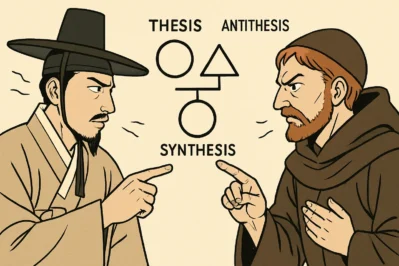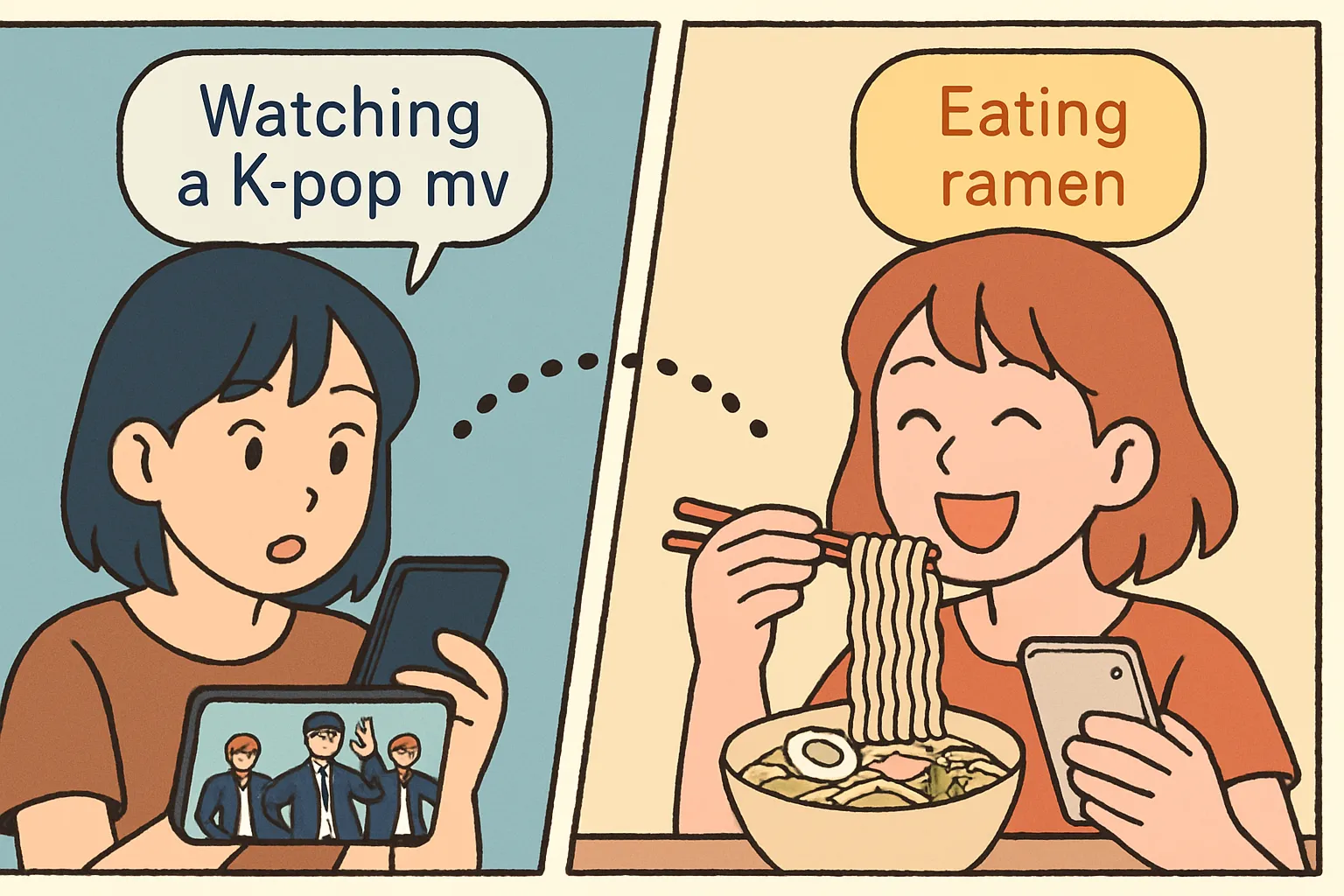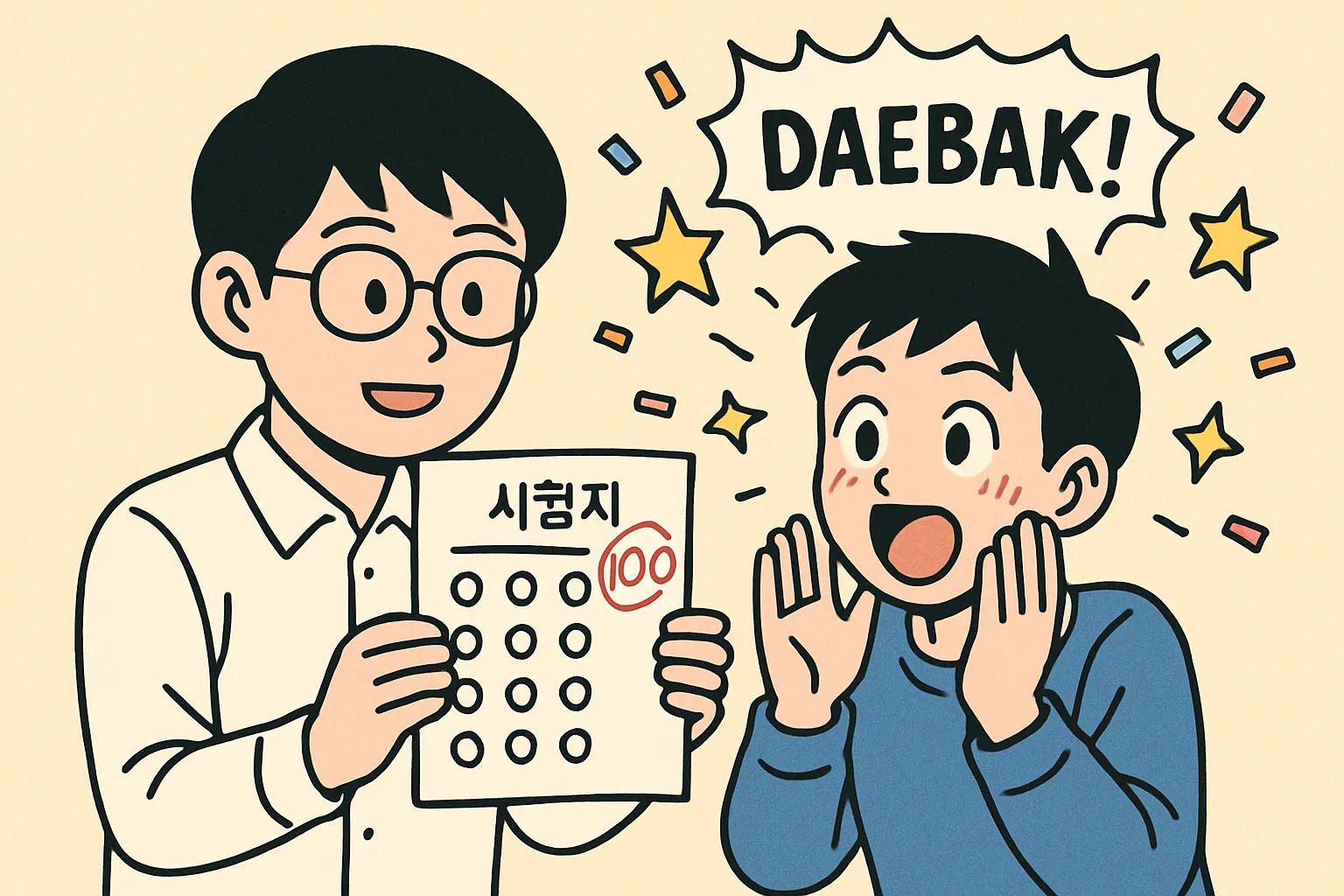Debate Like a Scholar: Mastering the Art of Scholastic Argumentation in Korean
Hello! This is [Maeil Hangeul], here to upgrade your Korean skills to a truly masterful level!
Ever found yourself in a deep, intellectual conversation in Korean and wished you had the precise vocabulary to articulate your arguments? Today, we’re diving into a topic that might seem ancient but is incredibly relevant for high-level discourse: the methodology of medieval Scholasticism. In today’s Korea, where complex debates on social policy, ethics, and philosophy are common in academic circles and media, the ability to dissect arguments with logical precision is a highly respected skill. We’ll learn the Korean vocabulary that allows you to structure your thoughts like a true scholar.
Core Expressions for Scholarly Debate
Here are the essential terms you need to navigate and dominate any intellectual discussion.
- 1. 논제 (Nonje)
- Pronunciation [Romanization]: Non-je
- English Meaning: Thesis; proposition; subject of discussion.
- Detailed Explanation: This is the central question or statement to be debated, the core of the argument. In scholastic terms, this would be the quaestio. It’s a formal and academic word used to define the exact point of contention. When you present a
논제, you are setting the stage for the entire debate that follows.
- 2. 공리 (Gongni)
- Pronunciation [Romanization]: Gong-ni
- English Meaning: Axiom; a self-evident principle.
- Detailed Explanation: A
공리is a foundational statement or proposition that is accepted as true without proof, serving as a starting point for further reasoning and arguments. This is very similar to the “first principles” that scholastic philosophers like Thomas Aquinas relied upon. Using this term shows you understand that all logical arguments must start from somewhere.
- 3. 연역적 추론 (Yeonyeokjeok Churon)
- Pronunciation [Romanization]: Yeon-yeok-jeok Chu-ron
- English Meaning: Deductive reasoning.
- Detailed Explanation: This refers to the logical process of reasoning from one or more statements (
공리or premises) to reach a logically certain conclusion. This was the primary tool of the scholastics. Mentioning연역적 추론in a discussion signals that you are analyzing the method of the argument, not just its conclusion.
- 4. 반증 (Banjeung)
- Pronunciation [Romanization]: Ban-jeung
- English Meaning: Falsification; counter-evidence; refutation.
- Detailed Explanation: This is the crucial evidence or argument that proves a thesis (
논제) to be false. In a rigorous debate, anticipating and addressing potential반증is key. The concept is central to the scientific method (as proposed by Karl Popper) but is equally vital in philosophical and logical disputation, a core activity of scholasticism.
- 5. 정반합 (Jeong-ban-hap)
- Pronunciation [Romanization]: Jeong-ban-hap
- English Meaning: Thesis-Antithesis-Synthesis (Dialectic).
- Detailed Explanation: While this term originates from Hegelian philosophy, it’s widely used in Korean intellectual circles to describe the process of resolving a conflict between a thesis (
정) and its antithesis (반) to arrive at a higher level of truth, the synthesis (합). This framework perfectly encapsulates the spirit of scholastic disputation, where opposing viewpoints were systematically addressed to reach a reasoned conclusion.
Example Dialogue: A University Debate
Let’s see how two graduate students might use these terms while discussing a philosophical paper.
- A: 이 논문의 핵심 논제는 자유의지가 신경학적 결정론과 양립 불가능하다는 것이군요.
(The core thesis of this paper is that free will is incompatible with neurological determinism.) - B: 네, 저자는 몇 가지 흥미로운 공리에서 출발했지만, 그의 연역적 추론 과정에 논리적 비약이 보입니다.
(Yes, the author starts from some interesting axioms, but I see a logical leap in his deductive reasoning.) - A: 동의해요. 특히 결정론에 대한 유력한 반증 사례들을 의도적으로 무시한 것 같아요.
(I agree. It seems he intentionally ignored powerful counter-evidence against determinism.) - B: 맞아요. 진정한 정반합적 접근을 통해 결론을 도출했다면 훨씬 설득력 있었을 텐데요.
(Exactly. If he had derived his conclusion through a true dialectic (thesis-antithesis-synthesis) approach, it would have been far more persuasive.)
Cultural Tip & Trend Analysis
In Korea, the ability to structure an argument logically is highly valued, not just in academia but in professional settings as well. While most Koreans may not be thinking about medieval philosophy, the principles of structured debate are deeply embedded in the culture of intellectual discourse.
- The Power of
정반합: You will encounter the정반합framework everywhere in Korean high-level analysis—from newspaper editorials critiquing government policy to literary reviews and business strategy meetings. Understanding and using this structure shows that you can think critically and appreciate nuanced perspectives, marking you as a true지성인(an intellectual). - Debate Clubs (토론 동아리): University debate clubs are extremely popular in Korea. In these clubs, students rigorously practice using terms like
논제,반증, and추론to hone their argumentative skills. Mastering this vocabulary will allow you to understand and even participate in these sophisticated discussions. When you use these words, you’re not just speaking Korean; you’re participating in a long tradition of logical inquiry.
Let’s Practice!
Time to put your newfound scholarly vocabulary to the test!
- Fill in the blank:
모든 과학적 가설은 잠재적 ______ 가능성을 열어두어야 한다.
(Every scientific hypothesis must remain open to the possibility of potential ______.)
(Answer: 반증) -
Challenge Question:
Think of a simple debate topic (e.g., “Coffee is better than tea”). Briefly state your논제(thesis) and one공리(axiom) you would base your argument on.
You’ve now learned how to articulate your arguments with the precision of a medieval scholar! This advanced vocabulary will set you apart in any sophisticated conversation.
Try creating a sentence with one of today’s expressions in the comments below! We look forward to reading your insightful thoughts.






